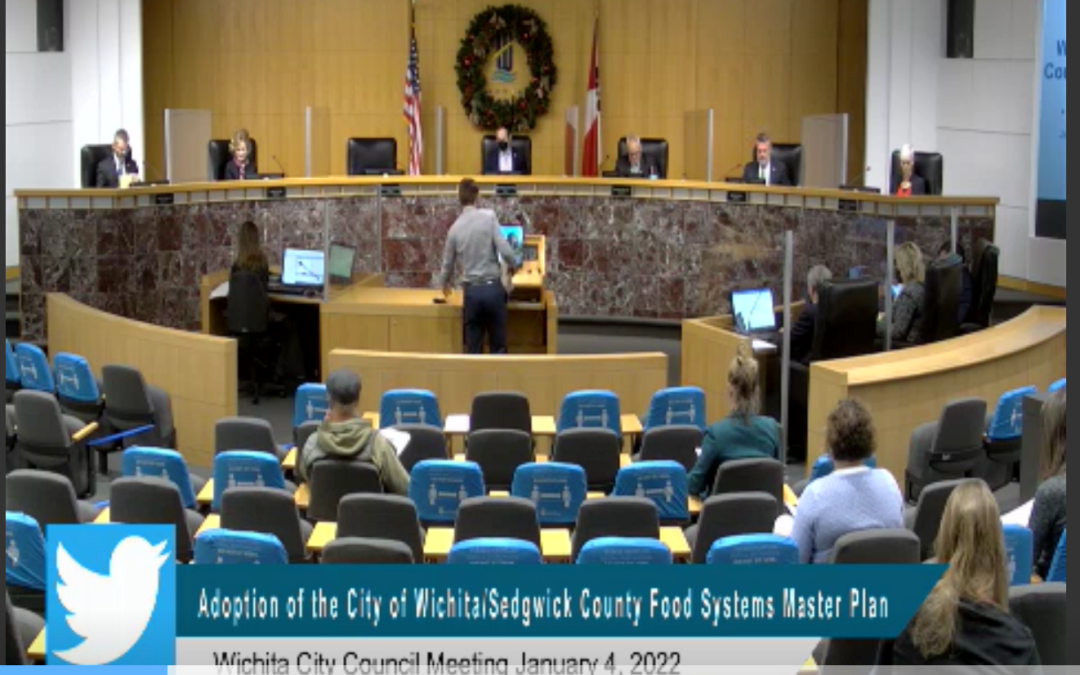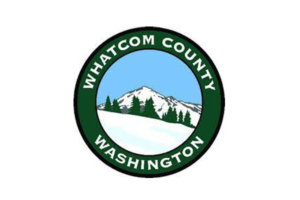Sedgwick County Kansas (population 523,824) is located in south-central Kansas. Its county seat is Wichita, the most populous city in the state. The Health & Wellness Coalition of Wichita has long championed food system progress in the region, serving as a convener and facilitator of efforts to address food insecurity, access to healthy food, and urban agriculture.
Over time, the Coalition recognized the need to impact the local government policies that shape the food system landscape. Therefore, the Coalition partnered with the City of Wichita and Sedgwick County governments to embark on a planning process that would result in a policy roadmap for the region’s local food system.
In early 2019, the Health & Wellness Coalition of Wichita hired New Venture Advisors (NVA) to design and facilitate their food system planning process. NVA staff worked closely with the Coalition and key stakeholders to design a robust, community-driven food system planning process. (See previous blog post for details about the process).
Their Opportunity
In June 2021, the Coalition had their recently-drafted City of Wichita/Sedgwick County Food System Master Plan in-hand, but needed to move to the next step: To have the Plan formally adopted by the Wichita City Council and the Sedgwick County Commission.
Communities often adopt master plans to guide land use, economic development, transportation, community health, and other dimensions of civic life. However, this was the first food system master plan for the region (and only the second in Kansas!), so some additional work was needed to educate elected officials about the need for and benefits of food system planning.
Partnering with New Venture Advisors
In addition to supporting the creation of the Food System Master Plan, NVA supported the Coalition and partners throughout the adoption of the Plan. We attended multiple Wichita City Council and Sedgwick County Commission meetings to explain the planning process, walk them through the policy recommendations, and answer their questions.
In particular, elected officials were interested in some of the benefits that can accrue to cities and counties with adopted food plans, including:
- Better coordination of food system efforts: Communities with clear, actionable food plans have a roadmap to ensure that food system stakeholders can partner on initiatives – reducing duplication of efforts and increasing efficiency.
- Increased opportunities for funding: Communities with formally adopted food system plans can make the case to funders that they have buy-in from key policymakers.
And of course, they wanted to know how to pay for it! We were able to help explain that many of the policy recommendations would not actually increase city budgets, but instead, represented a shift in funding (i.e. setting aside a portion of economic development funds for small food and farm entrepreneurs). Also, the timing of the American Rescue Plan Act (ARPA) funds allocated to the City and County couldn’t have been better. With the food system plan in-hand, elected officials were able to consider how to allocate ARPA funds to achieve the plan recommendations.
Moving Forward
Overall, the Plan’s adoption process took about 7 months to navigate through both local governments. The food system plan was unanimously adopted by both the Wichita City Council and Sedgwick County Board of Commissioners in early 2022. And they didn’t waste any time getting started on pursuing the recommendations!
The City and County are currently working on an ordinance establishing a joint city-county food policy council that would shepherd the Plan’s implementation. And they’ve already created a plan to utilize ARPA funds to focus on a key recommendation from the Plan: Working with existing small grocers and convenience stores to incentivize and enable them to stock fresh, healthy food options.



